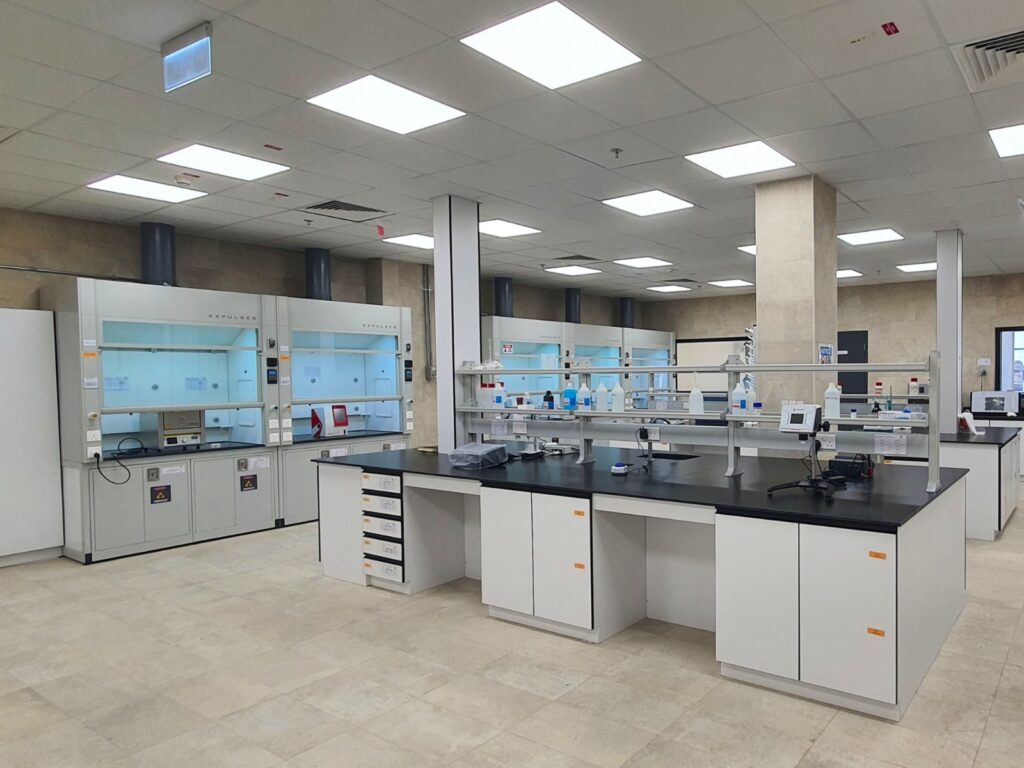The Essential Role of Laboratories in Industrial Transformation
Why are laboratories so important for industry?

With the growing demand for increasingly sophisticated and personalized products and services, modern industry finds itself in a highly competitive scenario. In this context, innovation and quality emerge as crucial differentiators for the success of any company.
The incessant search for new solutions, combined with the commitment to excellence, drives organizations to invest in research and development, seeking to improve their processes and products. It is in this scenario that industrial laboratories reveal their fundamental role, acting as true pillars of industrial excellence.
This dissertation aims to highlight the strategic importance of laboratories in contemporary industries, highlighting their contribution to quality assurance, the development of new products and the optimization of pro processes. Throughout this article, the various aspects that give laboratories a central role in industrial transformation, from quality control to technological innovation.
Quality Assurance and Compliance
The search for excellence in industrial production requires rigorous quality control. Laboratories play a fundamental role in this process, ensuring that final products meet established standards and consumer demands.
Quality control: Through a series of analyzes and tests, laboratories monitor the various stages of the production process, from raw materials to the final product. The analysis of parameters such as dimensions, chemical composition, resistance and durability allows identifying and correcting any deviation from expected quality, ensuring compliance with technical specifications.
Compliance with standards: The legislation establishes specific standards and regulations for each industrial sector, aiming to guarantee the safety and quality of products. Laboratories are responsible for carrying out the necessary tests to prove that products comply with these standards, avoiding problems such as product rejection on the market and the application of sanctions.
Analysis and testing: The range of analyzes carried out in industrial laboratories is vast and covers different areas of knowledge. Physical analyzes evaluate properties such as density, viscosity, melting point and mechanical resistance. Chemical analyzes determine the chemical composition of materials, identifying the presence of specific elements and compounds. Microbiological analyzes are essential to ensure the absence of pathogenic microorganisms in food, pharmaceutical and cosmetic products. In addition, metallurgical, electronic and environmental analyzes are carried out, among others, according to the needs of each industry.
Innovation and Development of New Products
Industrial laboratories are the heart of research and development (R&D), driving the creation of new products and processes that meet market demands and consumer expectations.
Research and development (R&D): Through experimentation and data analysis, laboratory researchers develop new materials, formulations and production processes. This activity is essential for creating products with unique and superior characteristics, which offer competitive advantages for companies.
Advanced Materials: The search for materials with increasingly improved properties, such as lightness, resistance, conductivity and biocompatibility, drives laboratory research. New materials with these characteristics are essential for the development of more efficient and sustainable products, such as electronic components, construction materials and medical devices.
Process optimization: Laboratories also play a crucial role in optimizing production processes, seeking to increase efficiency, reduce costs and minimize environmental impact. Through data analysis and process simulation, it is possible to identify bottlenecks and propose improvements that result in increased productivity and reduced energy and raw material consumption.
Security and environment
The safety of industrial products and processes, as well as the preservation of the environment, are increasingly present concerns in companies. Laboratories play a fundamental role in ensuring safety and mitigating environmental impacts.
Security analyses: Laboratories carry out analyzes to assess the safety of products and processes, identifying possible risks and proposing control measures. These analyzes are essential to avoid workplace accidents, product contamination and damage to the environment.
Environmental monitoring: Environmental monitoring carried out in laboratories allows the quality of air, water and soil to be assessed, ensuring compliance with environmental legislation and the prevention of pollution. Through sample analysis, it is possible to identify the presence of contaminating substances and assess the impact of industrial activities on the environment.
Waste Management: Laboratories generate different types of waste, such as chemical substances, biological materials and contaminated equipment. Proper management of this waste is essential to avoid contamination of the environment and exposure of people to risks. Laboratories must follow strict waste disposal protocols, ensuring that they are treated and disposed of in a safe and environmentally friendly manner.
Conclusion
In short, industrial laboratories play a crucial role in the transformation and success of modern companies. Throughout this article, we explore the main benefits of the presence of these spaces dedicated to research, analysis and development.
Laboratories guarantee the quality and conformity of products, ensuring that they meet established standards and consumer demands. Through rigorous analysis and precise testing, it is possible to identify and correct any deviation from expected quality, avoiding problems such as product rejection and loss of brand credibility.
In an increasingly competitive and globalized world, companies that invest in laboratories and in research and development demonstrate a strong commitment to quality, innovation and sustainability. By ensuring the excellence of their products and processes, companies gain consumer trust and stand out in the market.
In short, industrial laboratories are much more than simple analysis spaces. They are true centers of knowledge and innovation, which drive the growth and development of companies and contribute to the construction of a more sustainable future.